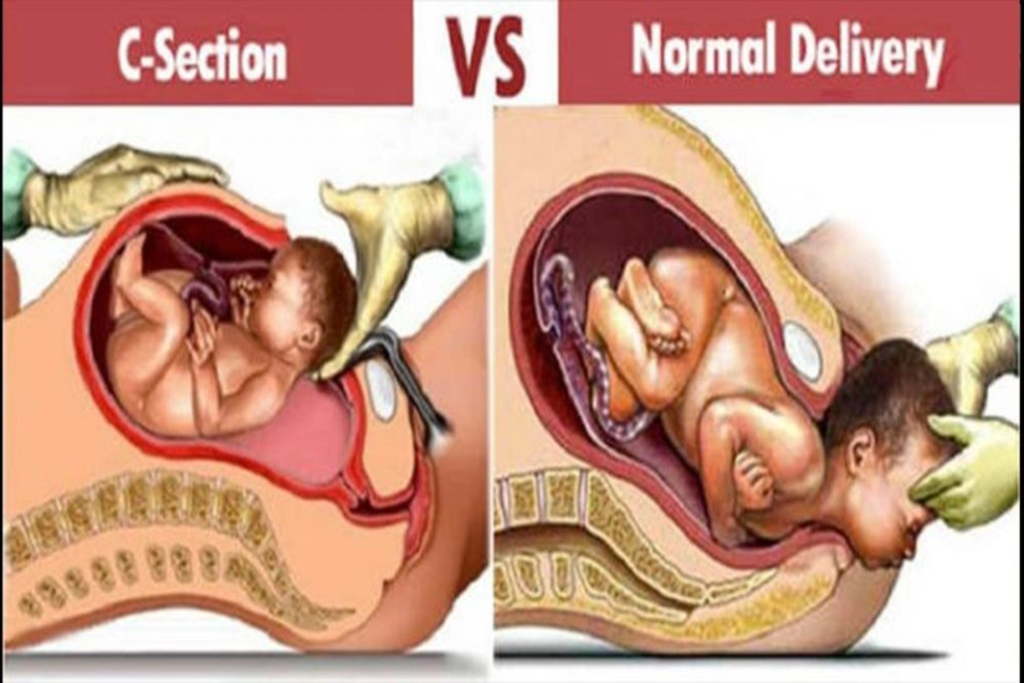
Overview:
Normal delivery, also known as vaginal delivery, is the process of giving birth through the birth canal without the need for surgical intervention. It is the most common and natural way of childbirth, where the baby is delivered after the onset of labor. The process involves the opening of the cervix, contractions to push the baby down, and the delivery of the baby and placenta. This method is associated with quicker recovery times and fewer complications for the mother and baby compared to cesarean sections.
Causes:
Normal delivery typically occurs when the pregnancy progresses without complications, and the baby is positioned head-down in the womb. The body naturally prepares for labor, and the uterus contracts to push the baby through the birth canal. Factors such as the health of the mother, the baby’s position, and the progression of labor play a significant role in whether a normal delivery is possible. The absence of medical complications like gestational diabetes, preeclampsia, or breech position contributes to the likelihood of a successful vaginal delivery.
Symptoms:
The primary signs that labor is approaching include regular and increasingly strong contractions, the rupture of membranes (water breaking), and the dilation of the cervix. Other symptoms may include back pain, pelvic pressure, and the passage of the mucus plug. As labor progresses, the mother will experience the urge to push and eventually deliver the baby.
Treatment:
For a normal delivery, supportive care is provided throughout the labor process, including monitoring the mother’s and baby’s well-being, managing pain (with methods such as epidurals, breathing exercises, or natural pain relief techniques), and assisting with the birthing process. Healthcare providers will ensure the cervix is dilating properly and that the baby is descending into the birth canal. Once the baby is delivered, the placenta is also delivered, and the mother will receive post-delivery care to prevent infection and assist with recovery.
Precautions:
It is essential to have prenatal care throughout the pregnancy to monitor the health of both mother and baby. For a successful normal delivery, the mother should follow the guidance of healthcare professionals on nutrition, exercise, and avoiding complications. The progress of labor should be closely monitored, and any complications, such as fetal distress or prolonged labor, should be addressed promptly. The mother should also stay hydrated, rest, and maintain a calm and supportive environment during the delivery.
Prevention:
While there is no way to guarantee a normal delivery, maintaining good health throughout pregnancy, including managing conditions like high blood pressure or diabetes, avoiding smoking, and attending regular prenatal checkups, can improve the chances of a smooth, vaginal birth. Additionally, exercises like pelvic floor strengthening may help prepare the body for labor.
For expert care in normal delivery, visit the KDM Hospital in Lucknow. The hospital offers comprehensive facilities for labor and delivery, including expert obstetric care, pain management options, and a dedicated team of doctors and nurses. The hospital also provides services like 24/7 doctor availability, Ayushman card acceptance, ambulance services, and budget-friendly care to ensure a safe and comfortable childbirth experience.
